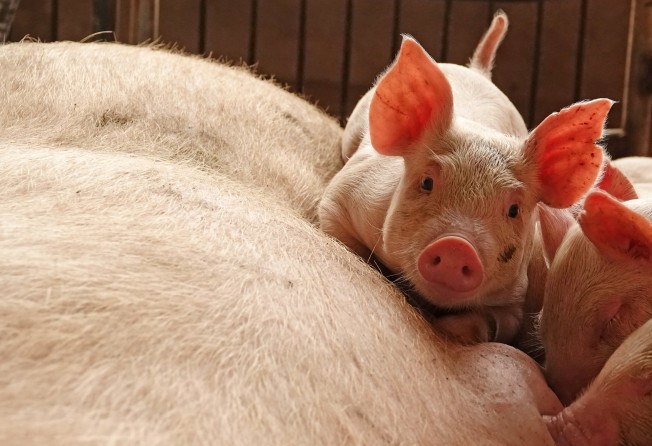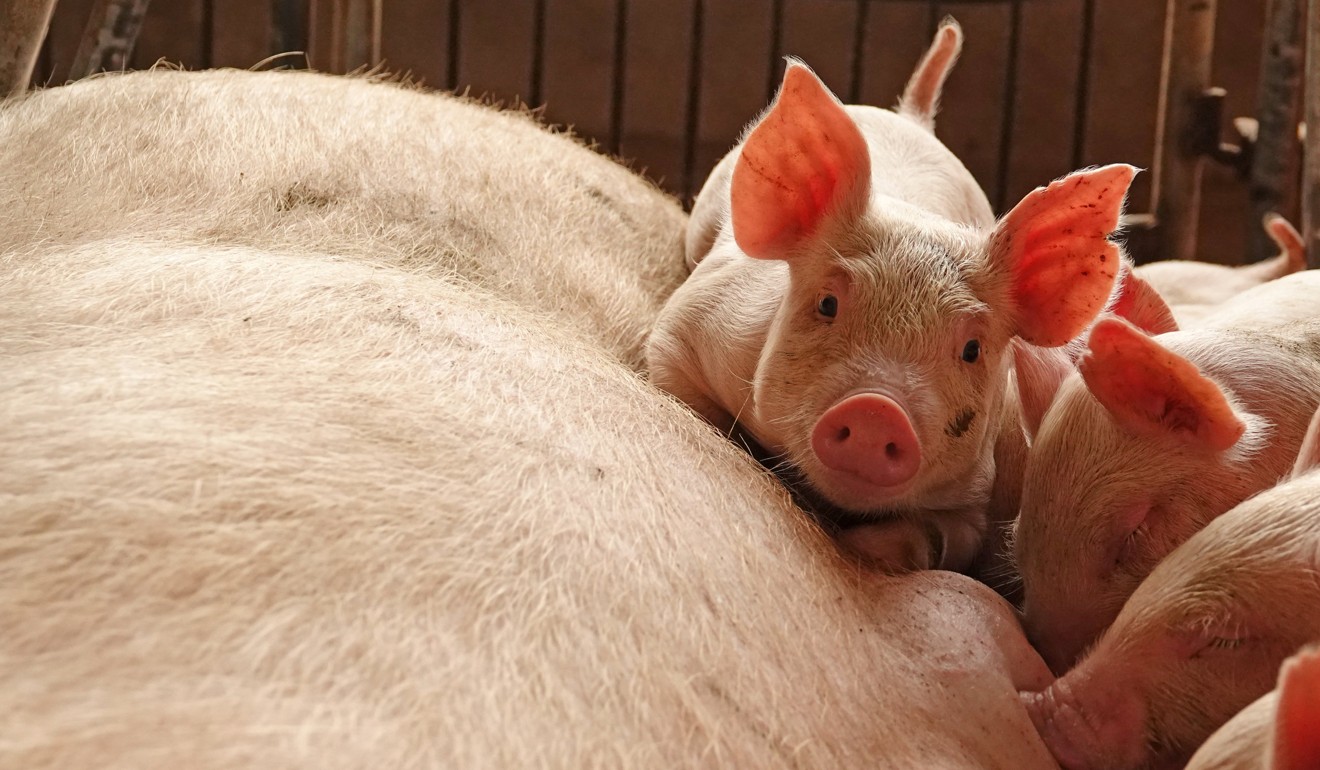Afraid of African swine fever? Try feeding your pigs vegetables, Chinese scientists tell farmers
Chinese researchers say some common plants harbour a molecule that appears to alter the DNA of the virus plaguing pig farms from Africa to South America

Common plants such as cabbage, cauliflower and rapeseed could hold the key to stopping the spread of the deadly African swine fever virus threatening pork production around the world, according to research by a major Chinese government laboratory.
Researchers at the Pilot National Laboratory for Marine Science and Technology in Qingdao, in eastern China’s Shandong province, said an unnamed molecule found in the plants could deactivate an important enzyme used by the African swine fever virus to assemble its DNA.
“Adding the vegetables to feed may help save a pig farm from the epidemic,” Wang Xin, a scientist involved in the research project, said.
But a Chinese agriculture official cautioned that the findings from the research might be difficult to put into practice.
The virus, for which there is not yet a vaccine or cure, originated in Africa more that a century ago and has spread to Europe, South America and Asia.
It does not affect humans but infected pigs usually die within 10 days of contracting the disease.
In Russia, more than a million pigs have been killed in the last decade by the disease, which is transmitted via contact with infected animals, ingesting meat from infected animals or bites from infected ticks.
China has about 700 million pigs, half the world’s swine population, and reported its first outbreak in Shenyang, Liaoning province, last month, prompting authorities to order tens of thousands of pigs to be culled.

As of Friday, China had reported close to 20 outbreaks of the disease in eight provinces, with new cases each week.
The authorities have tried to contain the virus by banning the transport of live hogs and pig products from 16 provinces and regions, shutting live markets and prohibiting the use of feed derived from pig blood.
But China was still struggling to stop the spread, state news agency Xinhua reported on Friday.
In research released online in mid-September, the laboratory in Shandong said an outbreak in Central Asia pointed to a potential preventive strategy.
Wang said many pig farms suffered big losses in the outbreak but a few in the infected areas were unaffected.
He said the unscathed operations had all fed their pigs rapeseed.
Wang declined to say where the farms were because they were located in a “sensitive area”.
“We have received and verified the information through reliable channels,” he said.
According to the study by Wang’s team, more than 70 species of plants, marine creatures and fungi contain the molecule that could keep the disease at bay. They include the plant shepherd’s purse; the sea slug and penicillium, the fungus used to produce penicillin.
“We suggest farmers consider feeding their pigs these vegetables,” Wang said. “It won’t hurt.”

The laboratory is working with other government agencies to develop a drug or vaccine to fight African swine fever – but that could take time.
An official at the Ministry of Agriculture’s Animal Feed Industrialisation Centre in Beijing stressed that the findings were preliminary.
“It will be difficult to put [the scientists’ suggestions] into practice,” the official said.
He said many farmers relied on mass-produced pig feed while the vegetables with the molecule were grown for human consumption and therefore more expensive.
Adding even a small amount of fresh vegetables to the feed each day would be a considerable burden for farmers, the official said.
“I suggest farms to wait until a drug or vaccine becomes available,” the official said.
Professor Liu Yule, director of the plant and pathogenic microorganism laboratory at Tsinghua University in Beijing, said it was possible that some chemicals in a plant could affect viral activities but so far it was largely a theory on paper.
Liu said the mechanism of this biological process was very complex, some observed phenomenon were difficult to explain, and it took a lot of research to determine an effective dose.
Some previous studies have suggested that plant molecules can modify DNA.
The micro RNA of honeysuckle, for instance, can effectively suppress the flu virus in the human respiratory system.